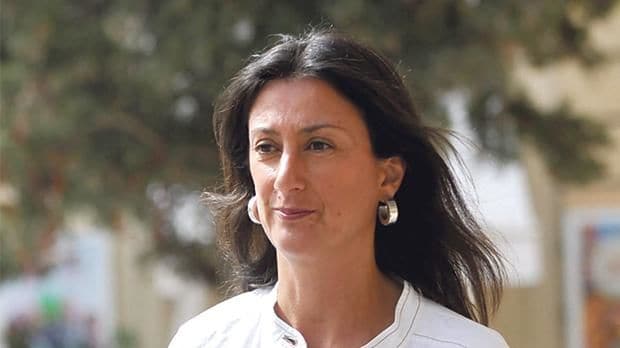
Two years ago today, three judges published their report after hearing dozens of witnesses give their account of the circumstances in which Daphne Caruana Galizia was killed. Most of the evidence they heard was given in public and extensively reported in the press. That was an extraordinary achievement in itself.
In the days after Daphne was killed Joseph Muscat’s government attempted to bury the story in sand. At first they sought to create diversions away from the truth, creating myths such as that human traffickers killed Daphne because of her reporting or that Daphne’s computer would prove her children killed her, not because of her reporting. Then they sought to congratulate themselves for ‘solving’ the case with the spectacularly filmed and broadcast arrests of her assassins. And after that for two years they rejected calls for a public inquiry approximately on the back of the same excuses that they tried to suppress calls for a public inquiry after Jean Paul Sofia died: that a public inquiry would somehow disturb the criminal investigation.
After all the secrecy and the misdirection, the clean questions asked and the uncomfortable answers given in open court at the public inquiry documented what really happened to Daphne. The inquiry wasn’t just about who or how Daphne was killed. It was about why. And the answer to that was that Joseph Muscat’s government bred impunity for the criminals she exposed empowering them enough to fully expect to kill her without consequence.
That was the headline two years ago: that Joseph Muscat’s government and by extension the state they ruled was responsible for the killing of a journalist.
Though very useful to hear the evidence publicly and cathartic to have the state clearly apportioning responsibility and taking on the lion’s share of it, that wasn’t all the public inquiry did. It was also useful because it drew up a list of recommendations on what needed to be done such that no future government would be able to generate again the same atmosphere which cost Daphne her life.
The inquiry looked at international legislative models on how to fight organised crime and recommended we update our laws to face up to the reality that our state could be again captured by people with criminal intent. The inquiry said we should have an anti-mafia law, that we should criminalise obstruction of justice and abuse of power, that we should empower the courts to take away unexplained wealth, and so on.
The inquiry also suggested reforms in the law to protect journalists and empower them to fulfil their key function in democracy. The judges told the government to hire a committee of experts to flesh out the recommendations in this regard.
That’s one thing the government did: they did appoint a committee of experts though the expertise of some of them is at best debatable. We’re told they have filed their own recommendations to the government just a few days ago. Their recommendations – officially meant to ensure transparency for our democracy – are still a state secret. Calls for their publication have so far been ignored.
For two years now this country has been in possession of a researched, publicly drawn up, expert set of recommendations on how to turn the corner after the dark depths it reached on October 16, 2017 when a journalist was killed here in the line of duty.
For two years now this country has done nothing about those recommendations.
After all this time, the people who are responsible for Daphne’s death can still tell themselves that if they want to do that sort of thing again no one will stop them.